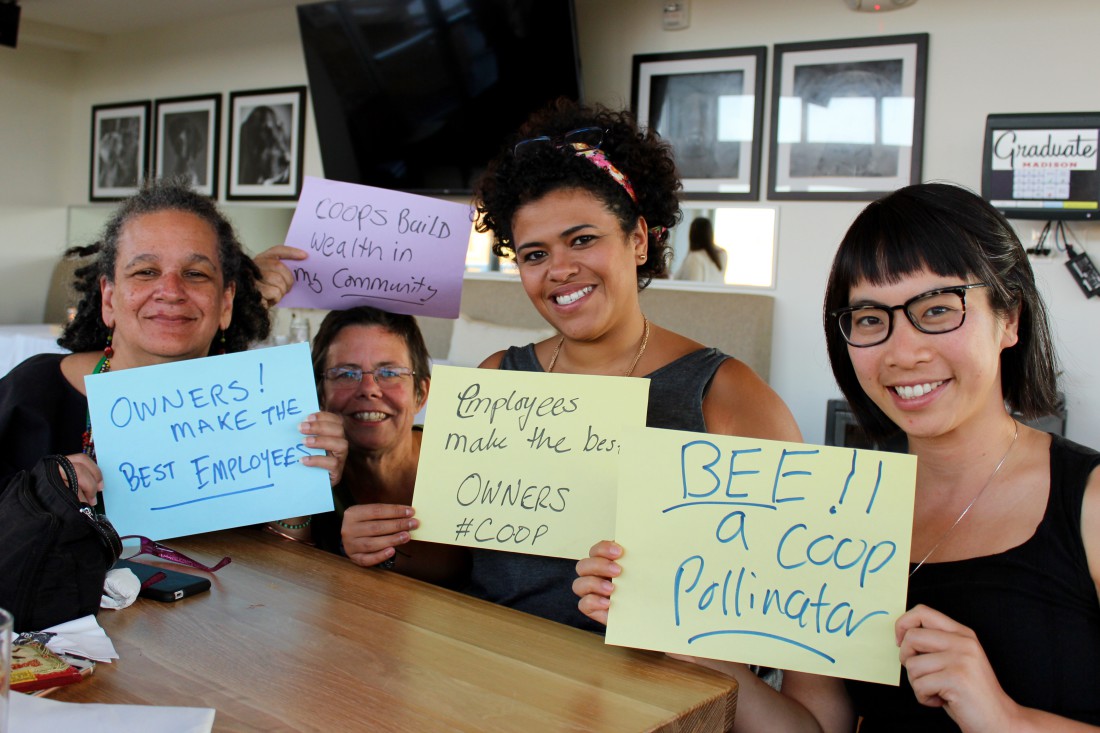In an effort to calm the “silver tsunami” — the impending retirement of baby boomers and its effect on local business — Mountain BizWorks is hosting an interactive workshop on Wednesday, Aug. 23 with Industrial Commons to provide information on cooperative, worker-owned businesses.
“Cooperatives 101” will provide existing or aspiring business owners with an overview of the business case for employee ownership. The cost is $15 and is scheduled from 5:30 p.m. to 7:30 p.m. at Mountain Bizworks offices at 153 S. Lexington Ave. in Asheville.
“The goal is to promote worker-ownership and employee-owned companies in Western North Carolina,” Franzi Charen says. Charen helped found the Morganton-based nonprofit Industrial Commons, which works to ensure that local businesses continue to thrive beyond the owner’s retirement.
“More people are retiring than ever before,” she says. “We’ve got 10,000 people retiring every day.”
Charen’s interest in the idea of cooperative businesses is grounded at home. Her father is 72 years old and has been trying to sell his company for eight years now. The trouble he’s had with selling his business got her wondering: How many local businesses actually sell? From her research of a BizBuySell survey, she found only 20 percent of businesses listed for sale actually sell.
“One of my concerns is losing these businesses to outside interests,” Charen says. She adds that it’s never too early for a business to start planning for succession. In March, Xpress reported 45 percent of all local businesses with paid employees in Buncombe County are owned by someone age 55 or older. All those local businesses together make a “big economic impact” on the local economy, Charen says.
Worker-ownership can succeed across almost all industries, Charen says. While she hears some owners claim, “I do way too much,” or think their employees are incapable of running their business, she thinks most businesses can operate cooperatively if given the chance.
“The business hasn’t been operated with the culture of [the owner] showing them how and teaching them how,” she says. The various ownership models “can be sources of worker engagement and economic opportunity for organizations at any phase of their business life cycle,” according to the press release.
For interested businesses, the nonprofit conducts a feasibility study in two parts — one part is to see if the business is financially capable and the other is to see if they have the “human capacity” for employee ownership. Thorough interviews are conducted with the owner to gain as much knowledge as possible in order to suss out whether the business will able to transition to worker ownership and if the switch makes sense for both the current and future owners. Part of the feasibility process is also crafting how the sale to the workers will be structured and financed and how the new business will be managed, Charen says.
“We guesstimate that over half the businesses that have approached us, so far, would likely make good candidates for conversion,” Charen says. “They need to be profitable businesses, in good standing, with solid projections for the future. It helps if the owner wants to stay on, at least for a period of time, to smoothen the transition … We are currently actively working with five businesses and have 10 more in the pipeline, exploring the model.”
Charen also sees cooperatively-owned businesses as a possible step towards helping communities with high levels of poverty. Worker-owned businesses, she said, provide “access to property and access to wealth,” which is a barrier for many who seek to climb the social ladder.
“If we can capture some of the businesses, I think that those businesses will then be our evangelist to have other businesses jump on board,” Franzi says. “We can eventually create an ecosystem of cooperatively-owned business that, together, create a very strong network of local-owners that are keeping businesses in our community for perpetuity.”
Workshop organizers shared this video, which illuminates their value chain vision for WNC:




Before you comment
The comments section is here to provide a platform for civil dialogue on the issues we face together as a local community. Xpress is committed to offering this platform for all voices, but when the tone of the discussion gets nasty or strays off topic, we believe many people choose not to participate. Xpress editors are determined to moderate comments to ensure a constructive interchange is maintained. All comments judged not to be in keeping with the spirit of civil discourse will be removed and repeat violators will be banned. See here for our terms of service. Thank you for being part of this effort to promote respectful discussion.